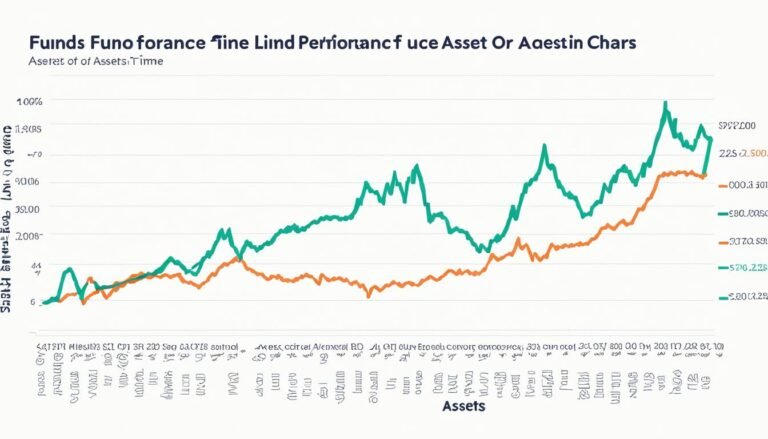Adapting to Regulatory Changes in Finance: Strategies for Professionals
In the dynamic landscape of finance, professionals face the constant challenge of keeping pace with regulatory changes. As the regulatory environment evolves, staying compliant is not merely a box to be checked but a strategic imperative.
By understanding the importance of regulatory awareness, leveraging technology for efficient compliance, fostering a culture of adherence, investing in continuous education, and engaging with regulatory bodies, professionals can navigate these changes effectively.
However, the question remains: in a world of ever-changing regulations, what specific strategies yield the most successful outcomes for finance professionals?
Key Takeaways
- Utilize technology for automated monitoring and reporting to ensure real-time compliance.
- Foster a strong compliance culture through leadership, accountability, and communication.
- Invest in continuous education and training to stay abreast of regulatory changes.
- Collaborate with regulatory bodies to enhance risk management and compliance strategies.
Importance of Regulatory Awareness
The significance of maintaining a keen understanding of regulatory frameworks in the financial sector cannot be overstated for professionals seeking to navigate the complexities of the industry successfully. Regulatory updates play a pivotal role in shaping the operational landscape for financial institutions, influencing everything from risk management practices to customer interactions. For professionals in finance, staying abreast of regulatory changes is not just a compliance requirement but a strategic necessity.
Being attuned to regulatory updates enables professionals to anticipate industry implications and proactively adjust their strategies to guarantee compliance and mitigate risks. Failure to adapt to new regulatory requirements can result in financial penalties, reputational damage, and loss of customer trust. Understanding the broader implications of regulatory changes can help professionals identify opportunities for innovation and competitive advantage within the constraints of the regulatory environment.
In this dynamic regulatory landscape, professionals who prioritize regulatory awareness are better positioned to navigate challenges and capitalize on emerging trends in the financial sector.
Utilizing Technology for Compliance
Utilizing advanced technological solutions is imperative for financial professionals to enhance regulatory compliance efficiency in a rapidly evolving industry landscape. Automated monitoring systems can play a critical role in ensuring that financial institutions adhere to regulatory requirements in real-time. These systems allow for continuous tracking of transactions, flagging any unusual activity that may indicate potential compliance issues. By implementing automated monitoring tools, financial professionals can proactively address compliance concerns, reducing the risk of regulatory violations.
In addition to automated monitoring, digital reporting tools facilitate streamlined and accurate reporting processes. These tools enable financial professionals to generate detailed reports quickly, ensuring regulatory deadlines are met efficiently. Digital reporting not only saves time but also reduces the likelihood of errors associated with manual reporting methods. By leveraging technology for compliance purposes, financial professionals can stay ahead of regulatory changes and demonstrate a commitment to upholding industry standards. Incorporating automated monitoring and digital reporting into compliance strategies is essential for managing the complex regulatory landscape effectively.
Building a Strong Compliance Culture
To foster a culture of strong compliance within financial institutions, professionals must prioritize embedding regulatory adherence principles at every level of the organization. Cultural transformation is key to instilling a deep-rooted commitment to compliance. This shift requires proactive leadership that sets the tone by championing ethical behavior and regulatory compliance. Leaders should implement robust accountability measures to make sure that compliance expectations are clear and consistently upheld.
Proactive leadership not only involves setting a strong example but also actively engaging employees in the compliance process. Communication strategies play an essential role in building a strong compliance culture. Regular training sessions, town hall meetings, and open-door policies can facilitate transparent discussions about compliance requirements and encourage employees to raise concerns or seek clarification.
Continuous Education and Training
Continuous learning remains a fundamental pillar in enhancing professionals' expertise and adaptability within the ever-evolving landscape of financial regulations. Staying abreast of industry updates is vital to navigating the intricate web of regulatory requirements. Professionals can benefit substantially from enrolling in certification programs tailored to their specific areas of focus within finance. These programs provide in-depth knowledge, practical skills, and a broader understanding of the regulatory environment, empowering professionals to make informed decisions and implement compliant practices.
Industry updates play a pivotal role in shaping professionals' understanding of current regulatory trends and requirements. Continuous education guarantees that professionals not only meet the existing regulatory standards but also anticipate and prepare for upcoming changes. By engaging in ongoing training, individuals can proactively adapt their practices to align with evolving regulations, minimizing the risk of non-compliance.
Certification programs offer a structured approach to learning, covering essential topics such as risk management, compliance frameworks, and ethical considerations. These programs not only enhance professionals' technical expertise but also demonstrate their commitment to upholding the highest standards of professionalism and compliance in the financial sector.
Collaboration With Regulatory Bodies
Professionals in the finance industry can greatly enhance their regulatory compliance strategies by fostering collaborative relationships with regulatory bodies. Regulatory engagement is key to staying informed about evolving regulations, ensuring compliance, and mitigating risks. By actively participating in partnership initiatives with regulatory bodies, professionals can gain valuable insights, contribute to shaping regulations, and demonstrate a commitment to upholding industry standards.
—
| Benefits of Collaborating with Regulatory Bodies | Examples of Partnership Initiatives |
|---|---|
| Stay informed about regulatory changes | Participating in industry working groups |
| Gain insights on compliance best practices | Engaging in regulatory consultations |
| Enhance regulatory risk management strategies | Co-creating industry guidelines |
—
Establishing open channels of communication through regulatory engagement fosters a culture of transparency and cooperation. Professionals who prioritize collaboration with regulatory bodies are better equipped to navigate complex regulatory landscapes, adapt to changes efficiently, and build trust with stakeholders. By actively engaging in partnership initiatives, finance professionals demonstrate a proactive approach to compliance and contribute to the overall integrity of the financial industry.
Conclusion
To sum up, professionals in the finance industry must constantly adapt to regulatory changes to guarantee compliance and mitigate risks. By staying informed, utilizing technology, fostering a culture of compliance, investing in education and training, and collaborating with regulatory bodies, individuals can navigate the complexities of the financial landscape.
Just as a skilled sailor adjusts their sails to changing winds, finance professionals must adjust their strategies to navigate the ever-changing regulatory environment.







